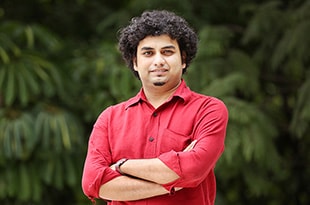Journal Article: ‘Feedback Spillovers Across Tasks, Self-Confidence and Competitiveness’ - Prof. Ritwik Banerjee Nabanita Datta Gupta and Marie Claire Villeval

Abstract: The researchers examine the following questions: Does feedback on success in a task increase individuals’ beliefs about their chance to succeed in a subsequent, unrelated, task? Does feedback on failure have a symmetric effect? Is the distortion of beliefs, possibly due to motivated beliefs, mistakes in updating or the feeling of having a lucky day, heterogeneous across individuals, in particular according to their status in the society? Conducting an artefactual field experiment in India with participants from different castes, the researchers show that feedback on success in a forced competition in a first task increases winners’ self-confidence and competitiveness in the subsequent task. Such feedback spillovers on self-confidence are asymmetric and heterogeneous according to status and more likely for already more confident individuals.
Authors’ Names: RitwikBanerjee, Nabanita Datta Gupta and Marie Claire Villeval.
Journal Name: Games and Economic Behaviour Journal
Journal Article: ‘Feedback Spillovers Across Tasks, Self-Confidence and Competitiveness’ - Prof. Ritwik Banerjee Nabanita Datta Gupta and Marie Claire Villeval

Abstract: The researchers examine the following questions: Does feedback on success in a task increase individuals’ beliefs about their chance to succeed in a subsequent, unrelated, task? Does feedback on failure have a symmetric effect? Is the distortion of beliefs, possibly due to motivated beliefs, mistakes in updating or the feeling of having a lucky day, heterogeneous across individuals, in particular according to their status in the society? Conducting an artefactual field experiment in India with participants from different castes, the researchers show that feedback on success in a forced competition in a first task increases winners’ self-confidence and competitiveness in the subsequent task. Such feedback spillovers on self-confidence are asymmetric and heterogeneous according to status and more likely for already more confident individuals.
Authors’ Names: RitwikBanerjee, Nabanita Datta Gupta and Marie Claire Villeval.
Journal Name: Games and Economic Behaviour Journal

